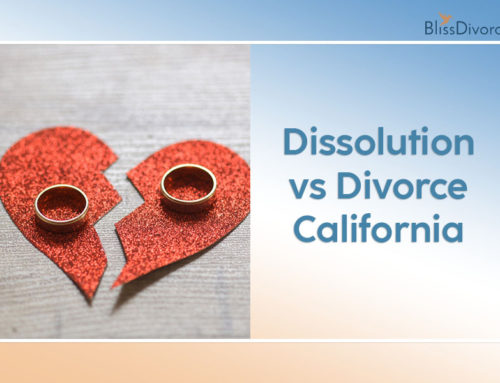The Rise of Cryptocurrency
Cryptocurrency, such as Bitcoin and Ethereum, has become increasingly popular in recent years, with more and more individuals investing in digital assets. With the rise of cryptocurrency, it is no surprise that the topic has found its way into the realm of divorce proceedings. In California, cryptocurrency is considered a form of property and is subject to division in a divorce. The court will treat it like any other asset and divide it in a fair and equitable manner.
Property Division in California
When a couple decides to divorce, the court will divide their assets and debts in a way that is fair and equitable to both parties. This process is known as property division. In California, property is divided into two categories: community property and separate property. Community property is any property acquired during the marriage, while separate property is property acquired before the marriage or through inheritance or gift.
Determining the Value of Cryptocurrency
Once it is determined that the cryptocurrency is subject to division, the court will consider the current value of the cryptocurrency at the time of the divorce. This can be a tricky process, as the value of cryptocurrency can fluctuate greatly. The court will also consider the length of time that the cryptocurrency has been held, any potential future appreciation, and any other relevant factors when determining its value.
Division of Cryptocurrency in California
Once the value of the cryptocurrency has been determined, the court will divide it in a fair and equitable manner. This may involve converting the cryptocurrency to cash in order to divide it, or it may involve one spouse being awarded a specific amount of the cryptocurrency.

Source: shutterstock.com / Photo Contributor: Burdun Iliya
Additional Considerations
It is also important to note that if one party is awarded the cryptocurrency, they will be responsible for any taxes that may be owed on it. Cryptocurrency is subject to capital gains tax, and the court will not consider this in the property division process.
Qualified Domestic Relations Order In California
In some cases, the court may order one spouse to transfer a specific amount of cryptocurrency to the other spouse. This may be done through a process known as a Qualified Domestic Relations Order (QDRO). A QDRO is a court order that directs a retirement plan administrator to pay a portion of the plan’s benefits to an alternate payee, such as a spouse.
Classification of Cryptocurrency in California
In addition to being considered property subject to division in a divorce, there are also other legal issues that may arise in regard to cryptocurrency. One of these issues is the question of whether cryptocurrency is considered “real” property or “personal” property. Real property refers to land and buildings, while personal property refers to everything else. The classification of cryptocurrency as real or personal property can have significant legal consequences, as real property is subject to different laws and regulations than personal property.
Marital or Separate Property in California
Another issue that may arise in regard to cryptocurrency and divorce is the question of whether it is considered a marital asset or separate property. As previously mentioned, California law states that community property is any property acquired during the marriage, while separate property is property acquired before the marriage or through inheritance or gift. However, determining whether cryptocurrency falls under the category of community property or separate property can be a complex process.
Tracing and Valuing Cryptocurrency
Another problem that may arise in cryptocurrency divorce is the question of how to trace the ownership and value of the assets. Cryptocurrency is digital and decentralized and, therefore, can be difficult to trace and value. This can make it difficult for the court to determine the value of the cryptocurrency and how it should be divided. This is one of the reasons why it may be necessary to hire a financial expert to help determine the value and ownership of cryptocurrency in a divorce.
Keeping Up with Law and Regulations In California
It is also important to note that the laws and regulations surrounding cryptocurrency can change rapidly, and it is important for both parties and their attorneys to stay up-to-date on the latest developments. This is particularly important as the IRS and other regulatory bodies have begun to take a closer look at the taxation of cryptocurrency.

Source: shutterstock.com / Photo Contributor: Roman Motizov
Conclusion
In conclusion, the rise of cryptocurrency in California has brought new legal challenges to the realm of divorce proceedings, including issues of classification as real or personal property, tracing and valuing assets, and determining whether assets are considered marital or separate property. If you’re using an online divorce platform that allows you to divorce without a lawyer or you’re using personal lawyers, it is crucial for both parties to stay informed about the latest developments in cryptocurrency law and regulations in order to ensure a fair and equitable division of assets in a divorce. It is also important for both parties to be transparent about their assets and debts, including any cryptocurrency holdings, to avoid any complications in the future.
Infographic
Cryptocurrency is becoming ever more popular among investors in California and worldwide. As its usage increases, it’s crucial to understand the implications of this asset concerning divorce proceedings. In California, courts view cryptocurrency as any other type of property during a divorce case. This infographic will provide helpful information on the crypto-assets legal implications for your rights within a settlement agreement, allowing you to make well-informed decisions about your life after separation from your partner.

Video
*This article is for informational purposes only and is not intended to provide legal advice. If you require legal advice, please contact a licensed attorney in your local area.




